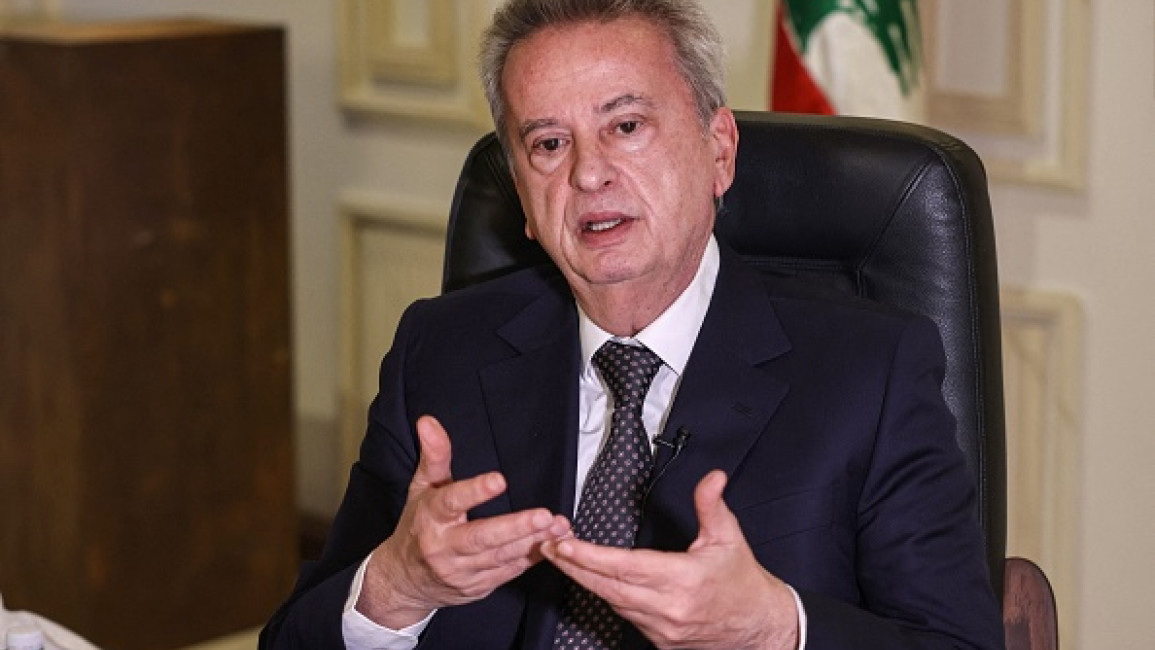Explainer: Is there hope for an IMF deal in an era after Riad Salameh?
Riad Salameh, the governor of Lebanon's Central Bank (BDL) for the last 30 years, is set to leave on Monday, 31 July, prompting questions about his successor and their willingness to engage in financial reform.
Salameh, once seen as a "financial mastermind", is now wanted by Interpol and is under investigation in several European countries for money laundering and embezzling – charges which he denies.
On Monday, Lebanon's caretaker Prime Minister Najib Mikati convened BDL's four vice governors, the Ministers of Finance, and the Deputy PM to prepare for the end of Salameh's term.
The meeting did not result in the naming of a successor nor any notable policy announcements. One of the vice governors, Wassim Mansouri, is set to take over, but only as a steward until a new permanent governor is announced.
There has been a flurry of statements from the BDL's four vice governors in the weeks leading up to Salameh's departure, with all governors threatening to resign if a new bank chief is not chosen.
Last week, the vice governors also announced they would scrap the controversial "Sayrafa" platform – an exchange which sold US dollars to businesses and importers at below market rate – and released a 3-page financial recovery plan.
The plan "aims to correct monetary policy and initiate the process of economic recovery … float the exchange rate" and is to be implemented over the next six months.
The vice governors announced the plan four years after Lebanon's 2019 financial collapse, in which millions of depositors had their savings confiscated by banks and the Lebanese lira lost 98 per cent of its value.
The plan resembles the initial financial recovery plan put out by the government headed by then-PM Hassan Diab in 2020.
Lebanese politicians reacted negatively to the plan put forth by the vice governors, similar to their reaction to Diab's plan three years prior.
Analysts have also cast doubt on the reform plan, saying it is politically motivated and does not differ in substance from previous financial recovery blueprints.
"Now they can excuse their resignations, saying, 'Oh, we gave out this plan, and you didn't adhere to these reforms for us to stay. We are not the problem; you are the problem," Sami Zoughaib, an economist and research manager at The Policy Initiative in Lebanon, told The New Arab.
Lebanon has reached a staff-level agreement with the IMF, granting it access to over US$3 billion in funding – but this is contingent upon the country implementing ten structural reforms.
These reforms include lifting banking secrecy laws, implementing capital controls, unifying Lebanon's multiple exchange rates, and increasing political and economic transparency.
More than a year after reaching the staff-level agreement, Lebanon has failed to implement one of these reforms.
The IMF described a "resistance from vested interests to reform" in a 29 June report and warned that "further delays in implementing reforms" will cause "irreversible consequences for the whole country."
Others have been blunter, with a 12 June report from The Century Foundation describing Lebanese elites as "sabotaging" financial reforms and IMF negotiations to continue to profit from the country's current cash economy.
The plan put forward by the vice governors last week signals a willingness to engage with the IMF's reforms. Still, Zoughaib said that even if the desire for these reforms were genuine, BDL could not be the only institution to implement reforms.
"Taking one portfolio and running with it will do nothing. If you have monetary reform with political or financial reform, nothing will be fixed," he explained.
Instead, what is more likely is a continuing game of hot potato between vice governors and Lebanon's parliament, with neither wanting to be on the hook for not implementing reforms.
"There is a fundamental difference between wanting power and wanting to govern. They want power in BDL, but they don't want to govern BDL … because now it's a ticking time bomb," Zoughaib said, pointing to its declining foreign exchange reserves.


